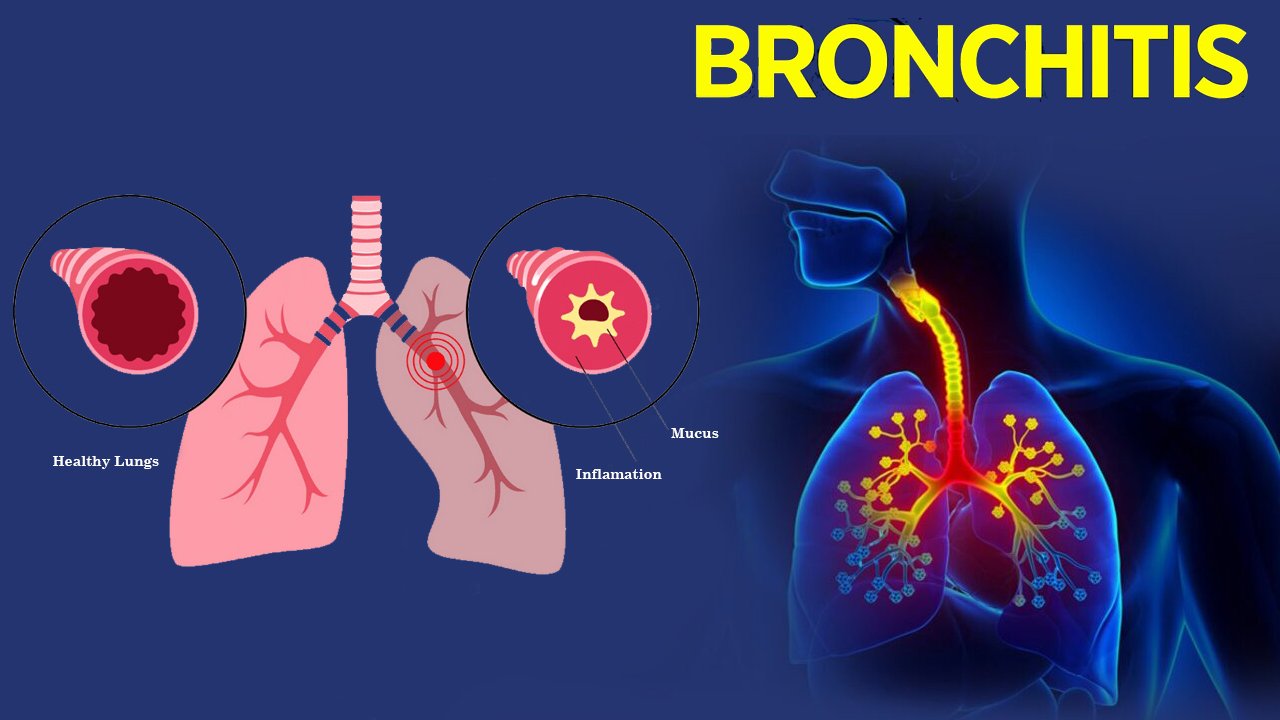Bronchitis remains one of the most common diagnoses made by primary healthcare providers. This condition is so common in fact, that it costs the health care system upwards of 300 million dollars annually. However, Acute Bronchitis should not be confused with Chronic Bronchitis, which is a much severer form of the condition and a principal manifestation of chronic obstructive pulmonary disorder (COPD). Regardless of condition origin, bronchitis as a whole remains a difficult condition for providers to treat as its pathophysiology (functional changes associated with the illness) is still misunderstood. Treatment protocols for this illness also lack clarity. Dietary factors, including nutritional supplementation, can influence inflammatory activity, antioxidant status in the body, and respiratory health.
Chronic Bronchitis:
The American Academy of Family Physicians defines Chronic Bronchitis as, ‘a respiratory condition characterized by a chronic cough productive of sputum (secretion that is coughed up) over three months’ time during two consecutive years, with a presence of airflow obstruction.’ Confused? Here’s a simpler definition: an airflow obstruction, resulting in the presence of chronic sputum production over a specified duration, usually greater than a month’s time. These characteristics typically confirm a clinical diagnosis of chronic bronchitis.
Regardless of the definitions given above, if you’ve been coughing for more than three weeks, your condition may indeed be considered ‘chronic.’ Over 10 million Americans are affected by this form of COPD. Chronic obstructive pulmonary disorders (COPDs) are the fourth leading cause of death in the United States, causing some 40, 000 deaths annually. Additionally, the cough is the fifth most common symptom for which individuals seek medical care; approximately 30 million visits a year!
What Causes Chronic Cough?
The most common underlying factor for one developing chronic cough is if a patient has a history of smoking. 90% of all chronic cough patients smoke regularly, or have a positive smoking history. Interestingly, chronic cough has been shown to manifest as active airway inflammation in ex-smokers who have been smoke-free for over a decade. Despite these findings, current research estimates that only 15% of all smokers will be diagnosed with an obstructive airway disease. Others factors attributed to causing chronic cough include:
Allergies – Allergies can cause an overproduction of mucus that runs down your throat from the back of the nose. This ‘postnasal drip’ can cause chronic cough. For this reason, it is wise to avoid any known allergens like dust, smoke, pollen, and animals.
Medicines – Although widely overlooked as a causal agent, some medicines can cause chronic cough. These include ACE inhibitors and Beta blockers (medicines to treat high blood pressure and heart failure).
Asthma – One of the main culprits of a nagging cough is asthma. People with mild to moderate asthma often times never realize they have the condition and do not attribute their chronic cough to asthma. However, doctors usually prescribe medication if they believe your cough is caused by an underlying condition such as asthma.
Acid Reflux – Stomach acid that makes its way back up to the throat (often called Gastroesophageal Reflux Disease) as “heartburn,” can also cause pain and chronic cough.
We have listed below the main causes of cough, both acute and chronic, in both Children and Adults:
In Adults:
- Angiotensin-converting enzyme (ACE) inhibitors
- Asthma
- Bronchitis
- Gastroesophageal reflux disease (GERD)
- Postnasal drip syndrome
- Smoke and other irritants
- Bronchiectasis
- Eosinophilic bronchitis
- Postinfectious
- Aspiration
- Bronchogenic carcinoma
- Carcinomatosis
- Irritable larynx
- Lymphoma
- Persistent pneumonia
- Psychogenic cough
- Pulmonary abscess
- Sarcoidosis
- Tuberculosis
In Children:
- Asthma
- Gastroesophageal reflux disease (GERD)
- Upper and lower respiratory tract infections
- Foreign body (young children)
- Aspiration
- Congenital abnormality or disorder
- Cystic fibrosis
- Environmental exposures
- Immunologic disorder
- Primary ciliary dyskinesia
- Psychogenic cough
- Tourette’s syndrome
- Tuberculosis
Standard Treatment Options:
Regardless of its cause, chronic cough remains extremely difficult to treat. Treatments are directed at the underlying cause after extensive physical examinations; including smoking cessation and prescription medications. In addition to these recommendations, influenza immunizations and exercise of the respiratory and associated muscles (e.g. aerobic exercise) remains important for treating the troublesome symptoms associated with this condition. Oxygen therapy, adequate hydration, and nutritional support are also advised for the long-term management of chronic bronchitis. Antibiotics have been shown to assist with only acute exacerbations, and only lead to modest improvement of airflow in persons suffering from chronic bronchitis. Again, physicians will determine treatment based upon the individual, his/her underlying conditions, and disease severity. Malnutrition is common in many individuals suffering from Chronic Bronchitis.

